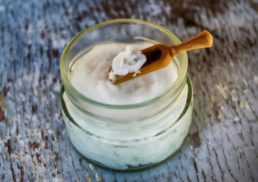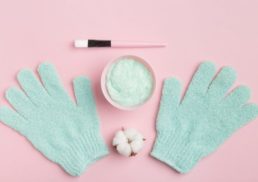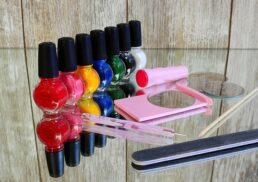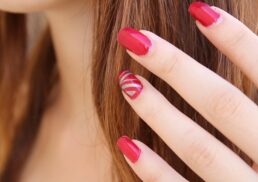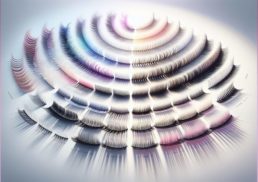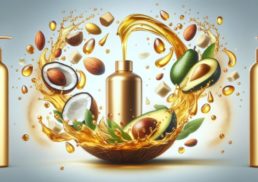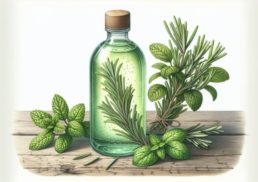Unlock the secret to glowing skin with BHA skincare in 2023! Discover the game-changing benefits of this powerful ingredient and how it can transform your skin. Dive into the world of BHA, learn how to choose the right exfoliating acid for your skin, and explore top BHA products that will elevate your skincare routine to new heights.
Table of Contents
Key Takeaways
BHA is a powerful skincare ingredient that offers exfoliation and pore-clearing benefits, making it ideal for treating acne.
It is important to understand the differences between BHAs and AHAs in order to choose the right exfoliating acid for your skin type.
Natural alternatives such as willow bark extract, tea tree oil, and green tea extract can provide gentler treatment with less potential irritation.
Understanding BHA: The Skincare Game Changer
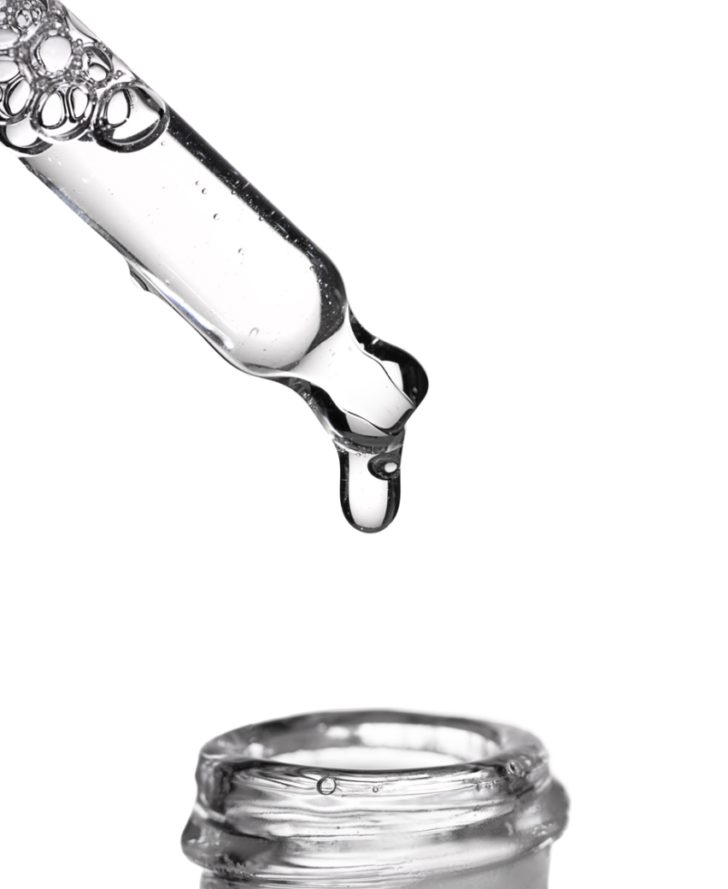
Beta-Hydroxy Acid, commonly known as BHA, is a potent skincare ingredient that has substantially transformed skincare approaches. Its oil-soluble properties make it ideal for oily and acne-prone skin, effectively unclogging pores and reducing inflammation.
But the benefits of BHA don’t stop there: it also promotes cell turnover, revealing a smoother, more radiant complexion.
BHA is not only beneficial for oily skin, but it also proves advantageous for sensitive skin types. By loosening the bonds that keep dead skin cells attached to the surface, BHA supports the skin’s natural exfoliation process, reducing the appearance of fine lines and wrinkles, evening out skin tone, and improving overall skin texture. With its ability to address various skin concerns, BHA has become a must-have ingredient in any effective skincare routine.
What is BHA?
Beta-Hydroxy Acid (BHA) is a form of chemical exfoliant that delves deep into the skin to eliminate dead skin cells, surplus oil, and impurities. Salicylic acid is the most common form of BHA, while other hydroxy acids like glycolic and lactic acid are classified as alpha-hydroxy acids (AHAs). Beta hydroxy acids, such as salicylic acid, are particularly effective in targeting dead skin and excess oil.
BHA’s oil-soluble characteristic enables it to delve deeper into the pores, proving especially beneficial for individuals with oily and acne-prone skin. In contrast, AHAs are water-soluble and work on the skin’s surface, making them more suitable for normal to dry skin types.
Benefits of BHA
BHA offers a myriad of benefits for the skin, including:
Exfoliation
Unclogging pores
Reducing inflammation
Combating acne and blackheads
Its ability to penetrate deep into the skin and dissolve the bonds between dead skin cells makes BHA an effective treatment for various skin concerns, from fine lines and wrinkles to uneven skin tone and texture.
Therefore, whether you’re tackling persistent acne or striving for a smoother, more radiant complexion, BHA makes for a potent ally in your skincare regimen.
How BHA Works on the Skin
BHA operates by breaking down the bonds between dead skin cells, enabling their easy removal from the skin’s surface. This not only results in smoother, clearer skin, but also helps to prevent clogged pores and reduce inflammation, making BHA an effective treatment for acne-prone skin.
With continued use, BHA can also help minimize the appearance of fine lines and wrinkles, even out skin tone, and improve overall skin texture. Just make sure to consult a dermatologist if you have a known allergy to aspirin or salicylic acid, or if you’re pregnant or nursing.
BHA vs. AHA: Choosing the Right Exfoliating Acid for Your Skin
When it comes to chemical exfoliation, the two main players are AHAs and BHAs. Both types of exfoliating acids offer a range of benefits for the skin, but they cater to different skin types and concerns. Understanding their differences can help you choose the right exfoliating acid for your unique skin type, ensuring the best possible results.
Comparing the properties of AHAs and BHAs can facilitate a well-informed decision on the exfoliating acid that will best meet your skincare needs. For example, if you have normal to dry skin and are looking to improve skin texture and reduce signs of aging, an AHA may be the better option for you. However, if you have oily or acne-prone skin and are looking to unclog pores and minimize breakouts, BHA might be the perfect solution.
AHA Overview
Alpha-Hydroxy Acids (AHAs) are water-soluble acids sourced from plants like fruits and sugar cane. They are ideal for normal to dry skin types and help with exfoliation and reducing signs of aging. Some common AHAs include glycolic acid, lactic acid, and citric acid. Among these, glycolic acid and lactic acid are examples of alpha hydroxy acid.
AHAs work on the skin’s surface, gently breaking down the bonds between dead skin cells and revealing a brighter, more even complexion.
BHA Overview
Contrarily, BHA is an oil-soluble acid that performs effectively on oily and acne-prone skin, offering deep exfoliation and pore-clearing advantages. Salicylic acid is the most common form of BHA, and its oil-soluble nature allows it to penetrate deeper into the skin, effectively dissolving the bonds between dead skin cells and clearing out clogged pores.
This makes BHA particularly effective for those looking to treat acne and blackheads, as well as for individuals with oily skin who want to achieve a smoother, clearer complexion.
Choosing Between AHA and BHA
Ultimately, your skin type and specific concerns will dictate the choice between AHA and BHA. If you have normal to dry skin, an AHA may be more suitable, while those with oily, acne-prone skin may find BHA to be a better fit.
It’s also worth noting that you don’t necessarily have to choose between the two – incorporating both AHA and BHA into your skincare routine can provide a comprehensive approach to exfoliation and help you achieve the best possible results.
Just be sure to start slowly and monitor your skin’s response to avoid over-exfoliation and irritation, as it’s essential to maintain your skin’s natural exfoliation process.
Top BHA Skincare Products to Try
To help you get started on your journey to clearer, smoother skin, we’ve rounded up some of the top BHA skincare products on the market. From cleansers and toners to serums and treatments, these products are packed with BHA to help you achieve your skincare goals.
Keep reading to discover our recommendations for BHA cleansers, toners, and serums that can help you unlock the full potential of this powerful skincare ingredient.
Cleansers
BHA cleansers effectively remove dirt and oil from the skin while providing gentle exfoliation, making them an excellent choice for those with acne-prone skin. Some top options include:
Renewing SA Cleanser
Effaclar Medicated Gel Facial Cleanser
Neutrogena Oil-Free Acne Wash
Pore Normalizing Cleanser
Vinopure Pore Purifying Gel Cleanser
Bom Bom Dia Bright Body Wash
These cleansers work to unclog pores, reduce excess oils, and leave your skin feeling fresh and clean.
Toners
BHA toners help to refine pores and balance the skin’s pH after cleansing, making them a valuable addition to your skincare routine. Some highly recommended BHA toners include Paula’s Choice Skin Perfecting 2% BHA Liquid Exfoliant, COSRX BHA Blackhead Power Liquid, and Medik8 Press & Clear Exfoliating 2% BHA Tonic.
These toners not only provide the pore-clearing benefits of BHA, but also help soothe and calm the skin, leaving it feeling refreshed and balanced.
Serums and Treatments
For targeted solutions to specific skin concerns like acne and blackheads, BHA serums and treatments can be a game-changer. Some top picks include:
Paula’s Choice Skin Perfecting 2% BHA Liquid Exfoliant
COSRX BHA Blackhead Power Liquid
La Roche-Posay Effaclar Salicylic Acid Acne Treatment Serum
LuxeJoie AHA/BHA Lipo Serum
These powerful formulations offer a targeted approach to treating acne, unclogging pores, and promoting smoother, clearer skin.
Incorporating BHA into Your Skincare Routine
To fully capitalize on the benefits of BHA, it’s crucial to correctly incorporate this potent ingredient into your skincare regimen. This means applying BHA products at the correct time and frequency, as well as being mindful of potential interactions with other skincare ingredients.
Read on to learn more about how to make BHA work for you.
When to Apply BHA
Applying BHA products post cleansing and toning your skin proves optimal. This ensures that your skin is clean and prepped for the BHA to work its magic.
Apply your BHA product of choice, allowing it to fully absorb before moving on to your serums, moisturizers, and sunscreen. This will help to ensure that the BHA can effectively penetrate your skin and deliver its full range of benefits.
How Often to Use BHA
Finding the right balance for your skin is pivotal when using BHA products. Start by using the product once a week, and gradually increase the frequency as your skin adjusts and tolerates the BHA.
It’s important to listen to your skin and adjust the frequency accordingly, as overuse can lead to irritation and sensitivity. As always, consult a dermatologist if you have any concerns or experience adverse reactions.
Combining BHA with Other Skincare Ingredients
While BHA can perform impressively on its own, exercising caution while combining it with other skincare ingredients is crucial. Some ingredients, such as retinol or additional exfoliating acids like AHAs, can potentially cause over-exfoliation and irritation when used in conjunction with BHA.
To avoid these issues, it’s best to consult a dermatologist or skincare professional for guidance on how to safely combine BHA with other ingredients in your routine.
Precautions and Side Effects of BHA Use
Being mindful of potential side effects and precautions is crucial when using BHA products, as is the case with any skincare ingredient. While many people experience great results with BHA, some may encounter skin irritation, sun sensitivity, or allergic reactions.
In this section, we’ll discuss some of the potential side effects and precautions to take when using BHA skincare products.
Skin Irritation
Skin irritation caused by BHA, particularly during the initial stages of use, is not uncommon. This can present as redness, dryness, and itching of the skin.
However, most people find that this irritation subsides with continued use as their skin adjusts to the BHA. To minimize the risk of irritation, start with a low concentration of BHA and gradually increase the strength as your skin becomes more tolerant.
Sun Sensitivity
BHA may enhance your skin’s sensitivity to the sun, underscoring the importance of daily sunscreen use when applying BHA products to maintain your skin barrier. Look for a broad-spectrum sunscreen with an SPF of 30 or higher, and be sure to apply it generously to all exposed skin.
In addition to sunscreen, consider wearing protective clothing, such as wide-brimmed hats and sunglasses, to further shield your skin from harmful UV rays.
Contraindications and Allergies
Before starting to use BHA, being aware of any contraindications or allergies that might concern you is important. If you have an allergy to aspirin or salicylic acid, consult a dermatologist before using BHA skincare products.
Additionally, if you are pregnant or nursing, it’s a good idea to check with your healthcare provider before incorporating BHA into your skincare routine, as certain concentrations may be contraindicated.
Natural Alternatives to BHA
If a gentler approach to exfoliation and acne treatment is what you seek, a variety of natural alternatives to BHA exist that can still deliver effective results.
From plant-based extracts to essential oils, these natural ingredients offer a gentler yet still powerful way to address your skincare concerns.
Willow Bark Extract
Willow bark extract is a natural alternative to BHA that offers similar benefits thanks to its natural source of salicylic acid. This plant-based extract can help to exfoliate the skin, reduce inflammation, and aid in clearing up acne, making it a great option for those seeking a more natural approach to their skincare routine.
Tea Tree Oil
Tea tree oil is another natural alternative to BHA that is known for its antibacterial and anti-inflammatory properties. This essential oil can help reduce acne-causing bacteria on the skin, soothe inflammation, and promote healing, making it an effective treatment for acne-prone skin.
However, be cautious when applying tea tree oil directly to the skin, as it may cause irritation in some individuals.
Green Tea Extract
Green tea extract is rich in antioxidants and has anti-inflammatory properties, making it a wonderful natural alternative to BHA for soothing and protecting the skin. This extract can help reduce redness and inflammation in the skin, as well as provide antioxidant protection against environmental damage.
Incorporating green tea extract into your skincare routine can be a gentle way to achieve some of the benefits of BHA without the potential irritation.
Summary
In conclusion, BHA is a powerful skincare ingredient that can transform your skin, offering numerous benefits such as exfoliation, unclogging pores, and reducing inflammation. By understanding the differences between BHA and AHA, choosing the right products for your skin type, and incorporating BHA into your skincare routine correctly, you can unlock the full potential of this game-changing ingredient. So why wait? Give BHA a try and discover the radiant, glowing skin that lies just beneath the surface.
Frequently Asked Questions
What does BHA do for the skin?
BHA’s are effective for clearing clogged pores, reducing excess oil and sebum, and helping to create new skin cells. They have anti-inflammatory and antibacterial properties, making them ideal for those with oily or acne-prone skin.
BHA’s can also reduce the appearance of wrinkles and fine lines on the skin.
Is BHA and salicylic acid the same?
Salicylic acid is a type of BHA (beta-hydroxy acid), obtained from white willow, and is the most commonly used form of BHA in cosmetics. It has been evaluated for safety by both the cosmetic industry and FDA, and it is often found in acne products.
Therefore, BHA and salicylic acid are essentially the same.
Is BHA or salicylic acid better?
Overall, salicylic acid is the better option as it penetrates deeper into the skin and has additional antibacterial actions.
BHAs can exfoliate the surface of the skin, but salicylic acid is more effective at targeting blemishes, unclogging pores and stimulating collagen and elastin production.
Is it OK to use BHA everyday?
It is generally safe to use BHA daily, but to be on the safer side, it is recommended to use it once every other day.
Pay attention to the other active ingredients in your skincare line-up and follow expert advice as needed.
Can I use BHA and AHA together?
Yes, you can use BHA and AHA together in your skincare routine. Just take it slowly and monitor your skin’s reaction to prevent over-exfoliation or irritation.


